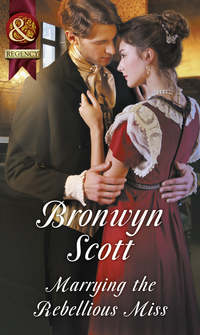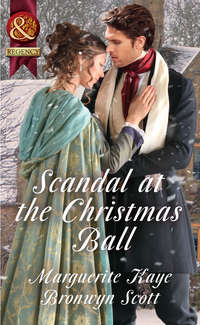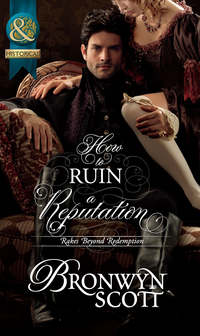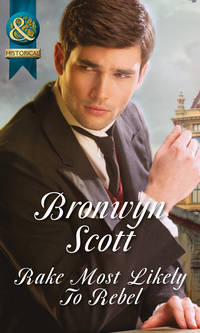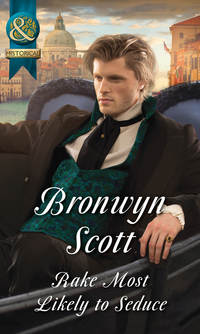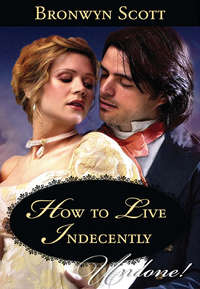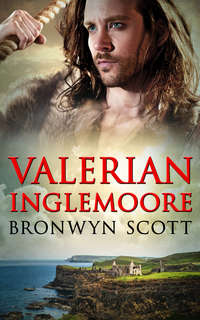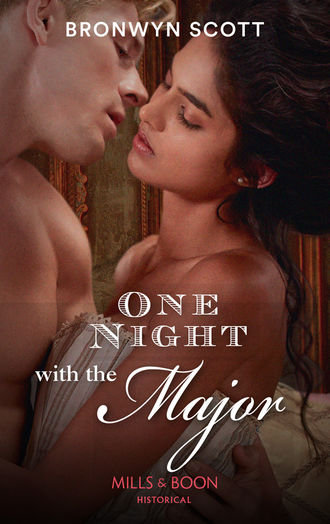
Полная версия
One Night With The Major
Cowden shook his head. ‘Let them think Fortis is alive awhile longer. Besides, you needn’t sanitise the details with me,’ he offered knowingly. ‘The news will be upsetting enough as it is.’ The whole Cowden crew was in town at the moment even though the Season would not be fully under way for a few weeks yet: Frederick, the heir, who had always been so jealous of Fortis’s freedom to serve his country; Helena, his wife, and their five boys; Ferris, his wife, Anne, and new baby, and Avaline, Fortis’s widow—a woman Fortis had spent only three weeks of married life with before he’d returned to his troops. Had he loved Avaline? Had Avaline loved him? Fortis had said little of his marriage. But Cam knew she had written to him dutifully for seven years. Cam did not relish telling her the news.
He sat, thankful for Cowden’s offer of informality. He could be himself here. He could be a friend, talking to another about a mutual friend instead of being the officer. He would return the Duke’s gift with the very best of Fortis: stories of Fortis in camp, how well his men liked him, how well the other officers respected him, the brilliance of his strategies, the successes of his warcraft, his daring in the Battle of Alma, the one preceding Balaclava. No father could be prouder. No friend could be luckier than to have Fortis by his side. In truth, it felt good to reminisce this way, to remember Fortis as he’d been in life with someone who knew him well.
‘And at Balaclava?’ the Duke asked at last, too sharp to overlook the one omission in the tales Cam had so carefully chosen. Some of the elation the stories had created ebbed from the room. ‘All that brilliance, all that courage, could not save him?’
Cam shook his head ruefully. ‘It was a series of missteps from the beginning. Raglan should have been using the cavalry to cut off the Russians at the Causeway, but he refused to take action.’ Fortis had been furious at the Lieutenant General’s refusal to put the Light Brigade into play. ‘Major General Cardigan was angry by the time he saw the Russians going after our cannon. He might have stood around all day while others saw action, but he would be damned if he would hold back his troops while the Russians stole our guns off the ridge.’ There had been other mistakes, too. Like sending the note for permission to strike with a messenger who believed too heartily in what a mounted cavalry could do and there’d been a mistake in the route Cardigan used. They should not have cut through the valley. That route had drawn the fire of the entire Russian army. ‘Fortis was ready for the charge. He was magnificent on that stallion of his, his sabre overhead as he called his troops to him. We were the right flank, the second line.’ Cam let the euphoria of battle fill him as he told the tale, how they’d driven through the Russian artillery, how they’d persisted, meeting the Russian cavalry in combat, pushing them back. There had been heady moments, glorious moments! He would not forget how gallant, how fearless his friend had looked. But they hadn’t the strength or numbers to hold the position. They’d been forced to withdraw.
Some of the euphoria let him. ‘We took the worst of it in retreat, in my opinion. We couldn’t withdraw to safety. That’s when Fortis fell.’ When had Fortis realised they’d crossed the valley of death? That the mission was impossible? That they might have achieved smashing through the lines, but that victory was their very downfall. They were exposed with no hope of shelter.
‘The papers said only one hundred and ninety-three returned,’ Cowden said quietly, reverently. ‘That fifty-five of the Fourth’s regiment were killed and four officers.’ But not Lieutenant Colonel Lord George Paget, or Major Camden Lithgow. Guilt swamped him for having survived.
‘Yes,’ Cam replied sombrely. Six-hundred-and-seventy-three men had charged the valley. He’d been one of the one hundred and ninety-three. He still grappled with that reality. How was it that he’d emerged unscathed while those around him fell—officers, good men who knew how to handle themselves in battle—cut down while he had not a scratch? No one could explain it, not the generals who had sent him home, not the priests who’d prayed with him over the dead and now he had to explain to the Duke of Cowden. Why had he lived when Fortis had fallen?
The Duke shook his head and put a fatherly hand on his leg. ‘No, don’t do that. Don’t blame yourself for being spared. At least one of you lived to come home and tell the tales. Fortis was a soldier. He knew the risks. He embraced them.’
Cowden drew a breath to ask the only question that remained. ‘Did you see the body?’
‘I saw him fall. He was only a few yards away from me. Khan, his big black, went down. The Russians shot his horse out from under him.’ Perhaps a horse had made a difference. Perhaps that was why he’d survived. Cam and his strong grey stallion, Hengroen, had both remained miraculously intact. ‘I pushed towards Fortis the moment I saw.’ Cam remembered turning Hengroen towards the fallen Khan, but he couldn’t get close; it was an impossible horizontal movement in a vertical charge. All around him, men and horses were falling, blocking his way. He could do nothing but push forward.
‘And afterwards? Did you see his body then?’ Cowden pressed. It was the question Cam didn’t want to answer, a question that raised all his old hopes and fears when it came to Fortis—that somehow Fortis had survived, that he wasn’t dead.
‘No, Your Grace, I did not. I had orders to carry out and there was...difficulty, shall we say? Afterwards. The British army does not accept defeat without placing blame.’
A little light of misguided hope flared in Cowden’s eyes. Cam had been prepared for this even before Cowden uttered the words, ‘Do you think there’s a chance...?’ He let the words drift off.
‘No, Your Grace, I do not. Four hundred men and horses were slaughtered. I saw him go down in impossible circumstances.’ Cam looked down at his hands and swallowed hard against the lump in his throat. ‘I know what you’re thinking. That Fortis was strong enough, canny enough to survive. I thought it, too. For months I hoped. When things settled, I scoured the countryside every chance I got. It was winter, it was cold. I asked at huts and in little villages if anyone had nursed a wounded man.’ He paused, remembering the desperate months of searching, of hoping and all the emotions that went with alternately experiencing intense hope followed by the intense grief of disappointment. There’d be a possible story in a village that only turned out to be someone else. Towards the end, he’d been drunk quite a bit of the time and bitter. It was not the proudest chapter in his life. He still cringed to think about it, embarrassed by his grief and his inability to manage it. The army had been embarrassed, too. He knew why he’d been sent home. In their opinion, he’d become a danger to himself and perhaps to others. He did not want to fuel such a disastrous hope for the Duke.
‘It’s been seven months, Your Grace. If I thought there was any hope left I would not have come home.’ He would have found a way even if it meant desertion. The army had wanted him to go home sooner, but he’d refused, citing the difficulties of winter travels. He’d bought himself a little more time until finally the Major General had insisted he go home and recover before he shot someone by accident or himself on purpose. The latter was more likely. He’d got the gun as far as his head on two occasions.
Cowden smiled. ‘Of course. Forgive me, I am a foolish old man.’
‘And I was a foolish young one—there is nothing to forgive.’ Cam returned the smile. ‘We both loved him and we will miss him. Always.’ He was just starting to accept that part, that his life would go on and Fortis would be with him in his heart. Maybe some day there would be peace along with that knowledge. But it would not be today.
Cowden drew a deep breath, steadying himself. ‘Are you ready? Let’s go tell the others.’ He clapped a hand on Cam’s shoulder. ‘You’ve been very brave in coming here. I know it was not easy. You have your own grief to deal with. You and Fortis were close, like brothers.’ Cam thought he detected a warning in that statement, that the Duke sensed he wasn’t dealing or hadn’t dealt sufficiently with his own grief. The Duke would be right.
Cowden peered at him with kind eyes. ‘You’re a soldier just like Fortis. I can see you want to be with your men far more than you want to be here in London. But don’t underestimate the power of being home, Cam. Whatever you may think of him, your grandfather will be pleased to see you.’
It was technically true. His grandfather would be glad to see him, but not in the way Cowden meant. Not in the way of an elder family patriarch affectionately welcoming home the returning, youthful branch of his family tree. His grandfather would be glad to see him because of what Cam could do for the family. That was as far as his grandfather’s affections went, for any of them. The old man simply wasn’t capable of love.
Chapter Four
The old man was, however, capable of a great deal of other things. Cam made his bow at four in the afternoon to his grandfather in the Earl of Aylsbury’s elegant pale blue Louis XV drawing room with its elaborate cornice work and gold leafing. By eight o’clock that evening, a family dinner, ostensibly in his honour, had been instigated with the best china laid out—his grandmother’s favourite Colandine pattern by Primavesi and Son in Cardiff blue, along with the very best wines—his grandfather’s favourite, the Chateau Margaux Bordeaux—and the best guests which included, not surprisingly, the Beauforts and their daughter, Caroline. By the end of the evening, Cam had an appointment to take Caroline out driving the next day and to escort her to a musicale the next. Everything was playing out just as he’d imagined it would. There were no surprises here. Just expectations. And he was meeting them all.
‘We’ll have a grand time, now that you’re home.’ Caroline smiled over her shoulder as he helped her with her wrap in the hall. The long evening was finally coming to a close. ‘There are so many entertainments this year. Mademoiselle Rachel will be performing at the St James’s Theatre in June...’
Cam did not hear the rest. Out there in the world, men were dying defending British interests abroad, dying to help their country build an empire and influence the world. In his estimation it was a noble legacy. Those lives had purpose. They were fighting for something, but was that something nothing more than the preservation of a life filled with the minutiae of looking forward to the talent of Mademoiselle Rachel treading the boards? It seemed an unfair trade. Surely there was more to life than the one depicted and acted out by Caroline Beaufort? He’d been in London less than a day and he was already itching to leave. The months of his leave stretched before him like an eternity. Today, he’d taken his first steps into the wasteland he’d imagined last night.
The thought of last night prompted a smile. What was his nameless lover doing right now? Then the smile faded. Was she dancing for another? No, he wouldn’t think of her like that—dancing with her veils, enticing another man. He would remember her as distinctly his. He would remember the way she looked, arching into him, her eyes wide as pleasure took her, the little sounds she made. She’d been as honest and open in her expression of pleasure as she had been in her nudity.
Caroline thought the smile was for her. ‘I am glad you’re home, Cam.’ Cam. That was new, as was the possessive way she held on to his arm and both set off alarms. Before, such a confession from her would have been accompanied by maidenly blushes. Tonight it was not, a reminder that she was not a shy maiden any more, no longer a debutante of eighteen, but a woman of twenty-one who was in her third Season.
‘I will go back to the Crimea in a few months. I am not home for good,’ Cam reminded her with a polite smile. He was already counting the days. His men needed him and he would continue to look for Fortis. He would do it discreetly this time. If Fortis was dead, he would find him—a body, a grave, anything to bring closure to that tragic day in Balaclava. Despite his counsel to Cowden, Cam wasn’t willing to give up until he had proof. Here in England, he was too far away to be effectual. He’d written letters and made enquiries, but it wasn’t the same as being on the ground. He didn’t want to be at parties, wasting his days with nothing when there was even the smallest chance Fortis might be out there, struggling to survive while he drank champagne. Cam pushed back the memories. Not now. He didn’t want to think about them here in front of everyone, people who didn’t understand what it meant to go to war.
Caroline trailed a well-manicured finger down his sleeve, oblivious to his pain. ‘Perhaps going back is not a foregone conclusion,’ she purred. ‘Maybe we will find you a reason to stay this time.’ The message was clear. There was a new enemy that demanded his attention right in front of him. Caroline had grown bold indeed. And why shouldn’t she be bold? She was not panicked she’d been out for three Seasons. Her family and the Lithgows, through his grandfather, had an understanding. She was to marry him. It was an understanding she’d been raised on and never had reason to doubt. The entrance hall of his grandfather’s home was no place to raise those doubts. So, Cam bent over her hand with a gallant smile and wished her goodnight.
Would he do it? Would he, like Fortis, marry a woman of his family’s choosing and simply leave her behind, going back to his old life as if nothing had happened? Or would his family demand he resign his commission? Would he do that, too—give up his career and his choice in order to marry and live the life the family wanted for him? Or would he refuse to marry at all? To refuse his family and the Earl was no small thing. As far as he knew, no one had refused his grandfather in Cam’s lifetime. Not his uncle, the heir, or his father. To what benefit would such a refusal be? What would be worth refusing the family and all the financial and social support that went with it?
* * *
That night, Cam dreamt quite pleasantly of his Indian girl, his secret life, his last adventure before falling into the abyss of the London Season. In the days that followed, filled with routs and parties, and Caroline clinging to his arm as if he were already hers, it was comforting to think of his dancer out there in the world somewhere. He thought of conversations he would have with her. He talked to her in his head the way he’d talked to her that night, confessing what he had confessed to no other. Perhaps if she were by his side instead of Caroline Beaufort, the magic of the Season would be restored.
The two women could not be more different: Caroline with her blonde paleness and penchant for tradition and correctness; his dancer with her toast-coloured skin and dark eyes and sensual boldness. Cam imagined her dressed in a fine ballgown, with jewels glittering at her neck, and he wondered what she’d think of the Season. Would she think it silly like he did? Or would she see the enchantment? In short, she became a fantasy of the ideal, the perfection of beauty and companionship—giving all to him while demanding nothing in return. It was a harmless fantasy. He could imagine all he liked. There was no chance of the fantasy being realised.
* * *
‘I cannot marry Wenderly.’ Pavia stood before her father’s desk of polished Indian rosewood, her shoulders straight, defiance coursing through her veins. She had made this argument before, only this time the outcome would be different. This time she had leverage.
‘Wenderly is an earl.’ Her father glanced at her mother, his eyes pleading with her to intercede, but her mother had launched a subtle rebellion of her own and refused to come to his rescue. He was on his own. One arranged marriage in the family was enough, her mother’s posture seemed to say. ‘He is highly placed in society.’ Pavia knew this argument of her father’s well. ‘You would be a countess. Your son would be an earl when Wenderly dies, which can’t be more than seven to ten years in the waiting.’ Leave it to her father to look at all angles, distasteful as they were. ‘You will be a rich, young widow, able to pick her next husband.’
How like her father to assume there would be a next husband. For all his innovation in business, he lacked a certain creativity when it came to imagining a woman’s life without a man beside her. She supposed to his balance-sheet-driven mind the deal looked acceptable, sustainable.
Pavia looked down at the fawn medallion woven in the Kashan carpet to hide her disgust. Minimum input, seven years, maybe less, and then maximum output to her benefit in her father’s eyes. She would be twenty-five, maybe twenty-eight. Not even thirty. But those seven years between now and then stretched before her interminably. Her father was assuming she’d survive them intact, mentally, emotionally. Her father was also assuming his numbers were right and Wenderly wasn’t endowed with supernaturally long life. Her father was just as confident in Wenderly’s demise as he was in the outcome of this conversation. He was going to win. It was the thing he did best: winning at all costs. And it had cost him plenty over the years, even if he couldn’t see it.
Pavia knew her father was not concerned about the cost of her rebellion. He viewed these arguments as a temporary unpleasantness between them that would end with her capitulation and the complete return of his wife’s loyalty, something he’d always taken for granted. As for herself, Pavia knew differently. This would not end well for him. She played her ace.
‘You don’t seem to understand. This is not an issue of wanting to. I cannot marry Wenderly. I no longer meet his marital criteria. I am not a virgin.’ She would never forget the silence that followed her statement. It was an expensive ace, not only in its acquisition, which had cost her the most valuable thing a young woman possessed by society’s standards, but also in the damage such acknowledgement would do to the inner workings of her family. It would positively cleave a chasm between her and her father.
In truth, the beginnings of that chasm were already there and had been ever since Pavia had realised she was nothing but a pawn for her father to use in the advancement of his ambitions. This would merely widen that chasm. The wedding negotiations with Wenderly had been a start, making it impossible to avoid what had already been the truth: at some point, she’d ceased to matter beyond being a placeholder for him, the face of his fortune. It had been this way ever since they’d returned to England. Now it had become a conflict that caught her mother in the middle—between a husband who wanted his wife’s loyalty and a daughter who wanted the same.
Her father’s eyes glinted dangerously, his voice razor-sharp. ‘Who? Tell me who and I will see that he answers for this on the field of honour.’ Of course that would be his first response—his first concern was always for appearances. How would this look to the public? What would people think? She should not be surprised. And yet, it stung that his first concern was not for her, even if that concern came with anger.
Pavia did not flinch. ‘I do not know his name.’ It was not a lie and she was glad for the truth. It would protect her from the guilt of dishonesty and it would protect her lover’s life. Images of his strong, glorious, well-muscled body came to mind. She pushed them away along with dangerous thoughts. It had occurred to her fleetingly on the walk back to her inn that it wouldn’t be impossible to find her lover. She knew the colour of his uniform, had some idea of his rank. She could go to the military offices at Whitehall and make enquiries. No. That was not what she’d promised him or herself. One night only. There were many reasons for that precaution and this was one of them. She did not want him to face her father at twenty paces for her folly. Her father, even at forty-five, was still deadly with a pistol.
Only now, when he’d been denied a victim, did he direct his attention towards her. ‘You ruined yourself to spite me? Turned yourself into a Jezebel as part of this temper tantrum of yours? Do you know what you’ve done? What man will have you now? And you’ve ruined this family.’ Her father’s anger rumbled near the surface. ‘All my life, I have worked for our family and in one instant you have destroyed it.’ It was a visible struggle to deny his temper free rein. Pavia did not think she ever recalled him being this furious. He pushed his hand through his hair. ‘Perhaps Wenderly can be duped.’ He gestured to her mother. ‘Sabita, you have to fix this. There must be some female trick to create the impression of virginity.’
Pavia froze. Her father meant to go through with it. If he did, her sacrifice would be for naught. She’d risked herself, brought conflict to her family, all for nothing. And she’d have to sustain the lie. She had not counted on this. She exchanged a quick glance with her mother, although she doubted there would be much hope there. Her mother would be just as mad as her father.
Her mother’s dark eyes held hers for a moment and then flitted away. ‘Wenderly isn’t the only peer on the market this Season,’ her mother offered. Pavia opened her mouth to protest. She didn’t want to marry Wenderly, but that didn’t mean she wanted to marry someone else either. Her mother slid her a stern look that said they would talk later. Pavia wasn’t fooled. When that conversation happened, her mother would do the talking. She would do the listening. ‘What is all your money worth, Oliver, if it can’t buy your daughter a husband? Surely your fortune can buy more than a middling earl.’ It was subtly done, the comment a compliment and a challenge. Her mother was a master when she chose to exert her influence. It was a choice she seldom made these days. England had beaten her down, changed her as it had changed her father. They’d been a different family in India.
Her father’s face became contemplative. Her mother smiled and pressed her argument softly. ‘There are two marquises and a duke hunting brides, and there are other earls desperate enough for funds to even look towards American brides. They’d be more than happy to take your money and overlook such a little thing as the lack of a maidenhead if their bride can keep a roof over the manor and claim English blood at the same time.’
‘It’s a slim field,’ her father mused, not liking the odds.
‘Slim for others, perhaps. But no one’s bank account can match yours and your daughter is beautiful,’ her mother responded smoothly. ‘Besides, Wenderly was no challenge for a man like yourself. Aren’t you always saying never take the first offer? Catching a husband isn’t much different than selling tea.’
Her father glanced at her mother who gave a small, imperceptible nod of encouragement. ‘All right,’ he said with an infrequent smile. ‘We shall go fishing, one last time. Draw up a list of the eligible men and we’ll see what can be done. We’ll need an invite to the Banfields’ ball in a couple weeks. It’s the most lavish entertainment this early in the Season. Pavia will need a gown that is equal to it. Get it ordered early so it will be done.’
Pavia smiled, careful not to betray her sense of victory. It wouldn’t be her fault if those gentlemen her mother spoke of didn’t come up to scratch. She had won. But she was acutely aware she’d only won time. Still, anything could happen in those precious weeks.
* * *
‘You betrayed me.’ Her mother glided into her room without so much as a knock and shut the door behind her, dismissing the maid with a flick of her hand. She could be imperious when she wanted to be. Once a princess, always a princess.
‘He’s the one who has betrayed us,’ Pavia argued. She’d been expecting this conversation and she was ready. ‘He wants to sell me to the highest bidder. Are you willing to let him do that? Wenderly is an old man with perverse tastes.’
‘A woman must marry, Pavia,’ her mother snapped. ‘Whether she likes it or not, she is nothing without a man. She has no money, no shelter, no status. Nothing with which she can protect herself. It’s not right, but it’s reality. What do you think happens to you without a husband if your father withdraws his protection?’ Her mother was furious.



